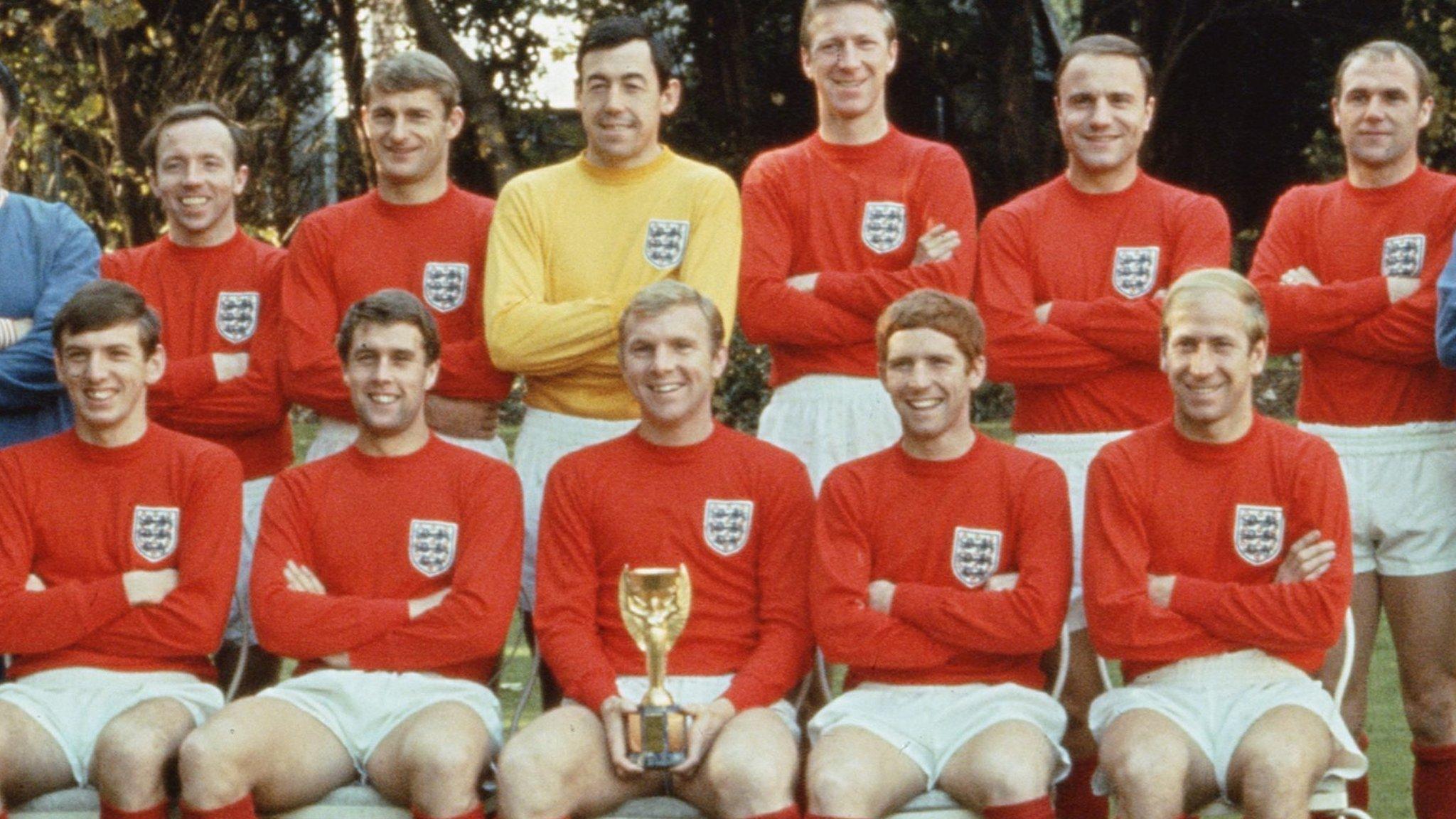FA wants Fifa to investigate possible dementia link to ex-footballers
- Published

Nobby Stiles (back row, far left), Martin Peters (bottom row, far left) and Ray Wilson (back row, far right) smile for the cameras with the Jules Rimet trophy along with the rest of England's victorious 1966 team
The Football Association wants world governing body Fifa to investigate whether former players have dementia as a consequence of playing the game.
The news comes after it was revealed three members of England's 1966 World Cup squad - Martin Peters, Nobby Stiles and Ray Wilson - have Alzheimer's.
The FA's medical chief Dr Ian Beasley is keen to discover if dementia is more common in ex-professional footballers.
"We are taking some research questions to Fifa imminently," he said.
Saturday's Daily Mirror, external interviewed family members of Peters, Stiles and Wilson. All suspect years of heading heavy, leather footballs could be to blame for their illness.
"The trouble is we just don't know," Beasley added. "It's a massive undertaking to try and decide whether there's an association between having played professional football and cognitive decline.
"We just don't know. It's always tempting to say 'it must be', but we're not sure."
Beasley wants researchers to assess whether the severity of any brain damage depends on which position the person played, how many games they played, and at which level - and also if there is any danger to modern footballers.
"The hope is [Fifa] will tell us one way or another,'' he said. "You may still want to be a professional footballer but at least we can advise you what the chances are of something irreversible happening to you."
'Very little evidence' for link - Fifa

Jeff Astle won five England caps between 1969 and 1970
In 2002, ex-England and West Brom striker Jeff Astle died aged 59 from a brain condition normally linked to boxers.
A doctor who examined Astle's brain in 2014 said he was killed by chronic traumatic encephalopathy (CTE), which had been caused by heading footballs.
Dr Willie Stewart said the condition was frequently mistaken for dementia. Astle had originally been diagnosed with early-onset Alzheimer's disease.
The Jeff Astle Foundation,, external which promotes care of other sufferers and research and education into the condition, was established in 2015.
In August of that year, the FA agreed to carry out research into head injuries in the sport as a result of a long campaign by Astle's family.
Fifa's chief medical officer Jiri Dvorak, speaking at the Football Medicine Strategies conference in London, said there was no confirmed link between footballers' brain trauma and dementia.
"We have very little evidence that would substantiate that assumption for football players," he said.
"But that's the reason why we are also studying the long-term changes of former professional male and female footballers. Not only for brain dysfunction but also early onset of osteoarthritis.
"We are looking at the long-term changes without having any suspicions yet."
- Attribution
- Published3 April 2014

- Published9 June 2014

- Attribution
- Published29 November 2011

- Published20 June 2016

- Published7 June 2019

- Published2 November 2018
